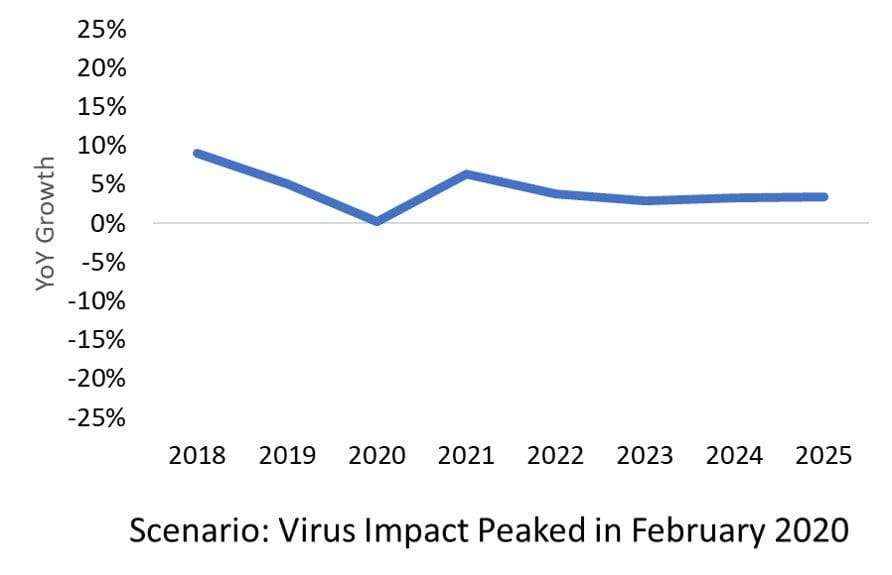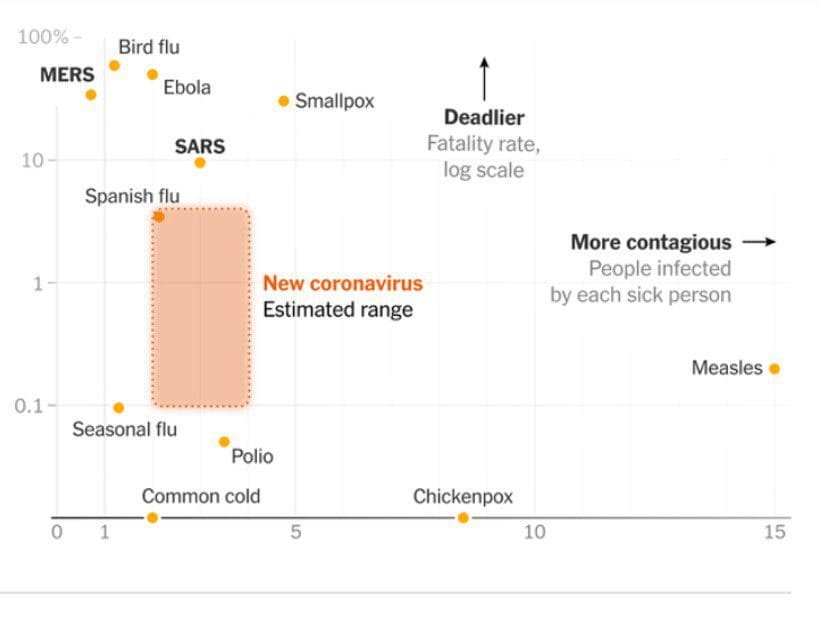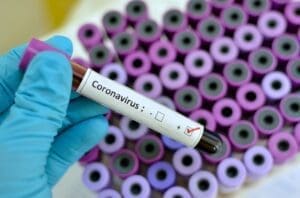 Coronavirus is certainly making an impact on the world, and more cases continue to pop up in the US every day. Over the past few days, the NBA, NHL, and MLS have suspended their seasons, MLB is postponing spring training and the start of the season, the NCAA men’s and women’s basketball tournaments have been canceled, the BAA has postponed the Boston marathon until September, most conferences have been canceled or postponed, multiple states have banned gatherings of more than 250 people, and schools have shut down (including my town’s for two weeks). And just when everything seems so low, we continue to see stories about how price gouging is occurring at alarming rates. To this point, look no further than hand sanitizer. Earlier this week, a quick search on Amazon showed a two-pack of 1-liter Purell bottles selling for $350. The same two-pack, although out of stock at Walmart, was selling for $21.99. For its part, Amazon said it had “blocked or removed” tens of thousands of listings suspected of price gouging and that it had global teams monitoring prices for violations 24 hours a day. Other retailers have begun to implement procedures to help alleviate the price gouging for black market sanitizer as well. Target and Kroger are both limiting purchases of items like hand sanitizer and disinfecting wipes in response to widespread stockpiling due to the coronavirus. Target began restricting customers to six items per person over the weekend, and Kroger made a similar move, with a limit of five items. These types of move are aimed at ending the buying frenzy that has wiped out store shelves over the last couple of weeks. As Steve Banker pointed out earlier this week, coronavirus is in the news, is going to stay in the news for the foreseeable future, and now is the time to think about contingency planning. And now on to this week’s logistics news.
Coronavirus is certainly making an impact on the world, and more cases continue to pop up in the US every day. Over the past few days, the NBA, NHL, and MLS have suspended their seasons, MLB is postponing spring training and the start of the season, the NCAA men’s and women’s basketball tournaments have been canceled, the BAA has postponed the Boston marathon until September, most conferences have been canceled or postponed, multiple states have banned gatherings of more than 250 people, and schools have shut down (including my town’s for two weeks). And just when everything seems so low, we continue to see stories about how price gouging is occurring at alarming rates. To this point, look no further than hand sanitizer. Earlier this week, a quick search on Amazon showed a two-pack of 1-liter Purell bottles selling for $350. The same two-pack, although out of stock at Walmart, was selling for $21.99. For its part, Amazon said it had “blocked or removed” tens of thousands of listings suspected of price gouging and that it had global teams monitoring prices for violations 24 hours a day. Other retailers have begun to implement procedures to help alleviate the price gouging for black market sanitizer as well. Target and Kroger are both limiting purchases of items like hand sanitizer and disinfecting wipes in response to widespread stockpiling due to the coronavirus. Target began restricting customers to six items per person over the weekend, and Kroger made a similar move, with a limit of five items. These types of move are aimed at ending the buying frenzy that has wiped out store shelves over the last couple of weeks. As Steve Banker pointed out earlier this week, coronavirus is in the news, is going to stay in the news for the foreseeable future, and now is the time to think about contingency planning. And now on to this week’s logistics news.
- Manufacturers face supply chain disruptions because of COVID-19
- FDA halts foreign inspections as coronavirus spreads
- US lifts tariffs on certain medical supplies to prevent spread of coronavirus
- Alibaba’s Chinese delivery arm is back at pre-outbreak levels
- Instacart accelerates launch of grocery drop-off service amid coronavirus fears
- Walgreens goes west (and south) with on-demand delivery
- Nestlé signs European Plastics Pact
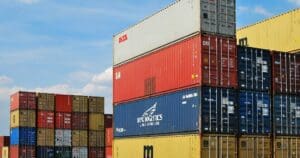 According to a new survey released by the Institute for Supply Management (ISM), 75 percent of companies have reported supply chain disruptions as a result of coronavirus disease, or COVID-19. The survey looked specifically at the effects of COVID-19 on business and supply chains. The data says that 80 percent of companies expect to experience some impact because of COVID-19 disruptions, the survey shows. Of those, 16 percent have adjusted revenue targets downward an average of 5.6 percent because of the virus. More than 60 percent of companies that regularly travel to China have no plans to do so over the next six months. Nearly half noted that travel to other international areas will be subject to extra scrutiny or limitations, with the most mentioned areas being Korea, Italy, Japan, Europe, Hong Kong and Singapore.
According to a new survey released by the Institute for Supply Management (ISM), 75 percent of companies have reported supply chain disruptions as a result of coronavirus disease, or COVID-19. The survey looked specifically at the effects of COVID-19 on business and supply chains. The data says that 80 percent of companies expect to experience some impact because of COVID-19 disruptions, the survey shows. Of those, 16 percent have adjusted revenue targets downward an average of 5.6 percent because of the virus. More than 60 percent of companies that regularly travel to China have no plans to do so over the next six months. Nearly half noted that travel to other international areas will be subject to extra scrutiny or limitations, with the most mentioned areas being Korea, Italy, Japan, Europe, Hong Kong and Singapore.
The US Food and Drug Administration (FDA) announced earlier this week that due to the coronavirus outbreak, the agency is postponing most foreign inspections through April. The FDA regularly inspects foreign drug makers, medical device makers, and manufacturers of other US. imported goods. The agency cited several reasons for the halt, including that there is a level 4 travel advisory from the State Department, which prohibits travel for all US government employees. The FDA said inspections deemed “mission-critical” will be considered on a case-by-case basis. In the past, when the FDA was unable to conduct physical inspections, it used measures such as denying entry of unsafe products, conducting physical examinations and product sampling at the borders, and using shared information from agreements with foreign governments to ensure product safety.
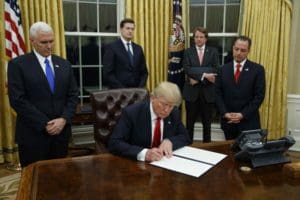 In another move to fight the coronavirus outbreak, US trade officials recently exempted more than 100 medical items manufactured in China from import tariffs. Cardinal Health and Medline Industries were among 27 companies with certain products that had their 7.5 percent tariffs lifted. Exempted products included protective masks, drapes and gowns, hand wipes, medical exam gloves, medicine cups, stethoscopes, and shoe covers. However, tariffs remain in place for a wide variety of items. Medline had 33 additional exclusion requests denied for items that included surgical drapes and biohazard bags.
In another move to fight the coronavirus outbreak, US trade officials recently exempted more than 100 medical items manufactured in China from import tariffs. Cardinal Health and Medline Industries were among 27 companies with certain products that had their 7.5 percent tariffs lifted. Exempted products included protective masks, drapes and gowns, hand wipes, medical exam gloves, medicine cups, stethoscopes, and shoe covers. However, tariffs remain in place for a wide variety of items. Medline had 33 additional exclusion requests denied for items that included surgical drapes and biohazard bags.
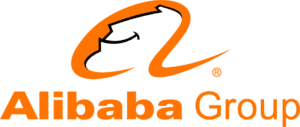 As the coronavirus continues to spread throughout the US, China is looking ahead, with perhaps the worst of it behind. Alibaba Group Holding Ltd.’s parcel and meal delivery arms have returned to pre-coronavirus outbreak staffing levels, the latest example of how China’s largest corporations are getting back to work. Cainiao, the company that drives Alibaba’s e-commerce business, and of which Alibaba owns more than 60 percent, is again at full strength after a few weeks during which the epidemic disrupted transport and held up shipments. Cainiao, the company at the heart of Alibaba’s e-commerce business, oversees a network of millions of delivery people that can handle upwards of a billion packages daily at their peak. Meal delivery unit Ele.me and grocery chain Freshippo are also back at full strength and operating at “full capabilities” at present, an Alibaba spokeswoman said.
As the coronavirus continues to spread throughout the US, China is looking ahead, with perhaps the worst of it behind. Alibaba Group Holding Ltd.’s parcel and meal delivery arms have returned to pre-coronavirus outbreak staffing levels, the latest example of how China’s largest corporations are getting back to work. Cainiao, the company that drives Alibaba’s e-commerce business, and of which Alibaba owns more than 60 percent, is again at full strength after a few weeks during which the epidemic disrupted transport and held up shipments. Cainiao, the company at the heart of Alibaba’s e-commerce business, oversees a network of millions of delivery people that can handle upwards of a billion packages daily at their peak. Meal delivery unit Ele.me and grocery chain Freshippo are also back at full strength and operating at “full capabilities” at present, an Alibaba spokeswoman said.
 Late last week, Instacart rolled out its new door-step grocery drop-off service earlier than expected due to the coronavirus outbreak. The new service gives customers the option to have groceries left at their doorstep at a designated time, instead of being hand-delivered. With more people being quarantined, the need for delivery services is increasing. Instacart said its sales over last week have jumped 10-fold and as high as 20 times in California and Washington, where the virus has been the most widespread in the United States. Hand sanitizers, canned foods, and face masks were among the items most in demand.
Late last week, Instacart rolled out its new door-step grocery drop-off service earlier than expected due to the coronavirus outbreak. The new service gives customers the option to have groceries left at their doorstep at a designated time, instead of being hand-delivered. With more people being quarantined, the need for delivery services is increasing. Instacart said its sales over last week have jumped 10-fold and as high as 20 times in California and Washington, where the virus has been the most widespread in the United States. Hand sanitizers, canned foods, and face masks were among the items most in demand.
 Following a successful implementation of the Postmates on-demand delivery service for items available at select Walgreens stores in New York City and Brooklyn in October 2019, Walgreens and Postmates are now making the service available in 13 additional cities. Customers can order items available at more than 1,700 participating Walgreens stores, via the Postmates site or app. They will pay zero delivery fees when they subscribe to the Postmates membership service, Postmates Unlimited, for $9.99 per month. The new markets for the partnership are Los Angeles, San Francisco, and San Diego, CA; Phoenix, AZ; Las Vegas, NV; Portland, OR; Washington, D.C.; Chicago, IL; Atlanta, GA; Charlotte, NC; Miami and Ft. Lauderdale, FL; and Houston, TX.
Following a successful implementation of the Postmates on-demand delivery service for items available at select Walgreens stores in New York City and Brooklyn in October 2019, Walgreens and Postmates are now making the service available in 13 additional cities. Customers can order items available at more than 1,700 participating Walgreens stores, via the Postmates site or app. They will pay zero delivery fees when they subscribe to the Postmates membership service, Postmates Unlimited, for $9.99 per month. The new markets for the partnership are Los Angeles, San Francisco, and San Diego, CA; Phoenix, AZ; Las Vegas, NV; Portland, OR; Washington, D.C.; Chicago, IL; Atlanta, GA; Charlotte, NC; Miami and Ft. Lauderdale, FL; and Houston, TX.
And finally, Nestlé has signed the European Plastics Pact, to make 100 percent of its packaging recyclable or reusable and reduce its use of virgin plastics by one third by 2025. The European Plastics Pact’s focus is to move towards a circular plastics economy, rather than a virgin plastics economy. A circular economy is an economic system aimed at eliminating waste and the continual use of resources. Circular systems employ reuse, sharing, repair, refurbishment, remanufacturing, and recycling to create a close-loop system, minimizing the use of resource inputs and the creation of waste, pollution and carbon emissions. In the case of plastic, this means simultaneously keeping the value of plastics in the economy, without leakage into the natural environment.
That’s all for this week. Enjoy the weekend, and the song of the week, Shut Down by the Beach Boys.

















